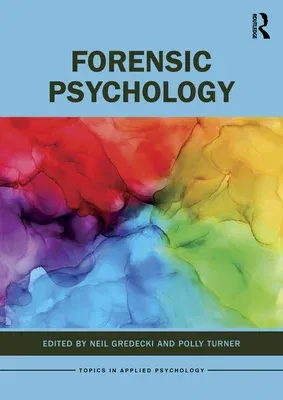Drawing on psychological theory and research, this text outlines the
core roles of the forensic psychology profession, providing students
with a broad overview of the field and bringing to life the work of the
forensic psychologists. Written by leading UK practitioners and
researchers working in a range of contexts, it invites students to
reflect on how psychological literature helps us to understand people in
contact with the justice system.
Forensic psychology is continually evolving as a discipline and
profession, shaping and responding to changes in legal processes,
policies and provision. This book highlights the work of forensic
psychologists, which covers a range of areas including assessment and
intervention, applied research, consultancy and the training and
development of staff working in forensic services such as secure
services or community settings. Case studies are used to link
psychological theory to practice, showcasing the latest developments in
the field, and providing students with insights into best practice. The
book further challenges myths in the field, encouraging students to
humanise human harm and to apply compassion in their understanding of
offending behaviour. Each chapter includes tasks and scenarios to
promote critical thinking around theory and practice in what is an
exciting time to work in this evolving field.
As a field of study and a profession within the systems for criminal and
civil justice, forensic psychology overlaps and interacts with many
other areas within and outside of psychology. As such, this volume
details the contribution of forensic psychology to a range of
presentations and organisational and professional issues, and is an
ideal resource for courses in forensic psychology.

